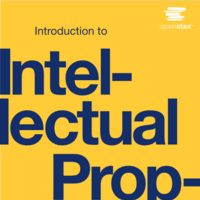Search
Books+
Searching 1,730 books
Search related to the career Patent Lawyer
Qualifications to Become a Patent Lawyer:
To become a patent lawyer, individuals typically need to meet certain qualifications and complete specific steps. Here are the key requirements:
1. Educational Background:
- Obtain a bachelor's degree: A four-year undergraduate degree in a relevant field such as engineering, computer science, or biology is typically required.
- Graduate from law school: After completing a bachelor's degree, aspiring patent lawyers must attend an accredited law school and earn a Juris Doctor (J.D.) degree.
2. Law School Admission Test (LSAT):
- Take the LSAT: Prospective law students must take the LSAT and achieve a competitive score. Law schools consider LSAT scores as part of the admission process.
3. Law School:
- Complete law school coursework: During law school, students must complete a curriculum that covers various legal subjects, including intellectual property law.
- Focus on patent law: Students interested in becoming patent lawyers should consider taking specialized courses or participating in programs that focus on patent law and related topics.
4. Patent Bar Exam:
- Pass the Patent Bar Exam: After graduating from law school, individuals must pass the United States Patent and Trademark Office's (USPTO) Patent Bar Exam. This exam tests knowledge of patent laws, regulations, and procedures.
5. State Bar Exam:
- Pass the state bar exam: To practice law in a specific jurisdiction, individuals must pass the state bar exam in that jurisdiction. Requirements and exam formats vary by state.
6. Optional: Additional Credentials and Experience:
- Gain practical experience: Acquiring relevant work experience, such as internships or clerkships at law firms specializing in intellectual property, can be beneficial.
- Obtain a Master of Laws (LL.M.): Pursuing an LL.M. degree in intellectual property law can provide additional expertise and enhance career prospects.
- Join professional organizations: Membership in organizations like the American Intellectual Property Law Association (AIPLA) can offer networking opportunities and access to resources.
It's important to note that specific requirements may vary depending on the jurisdiction and country in which one intends to practice patent law.
Source: Various AI tools
Entrepreneurship
Books tagged entrepreneurship
Law
Books tagged law
Vocational skills
Searched in English.































